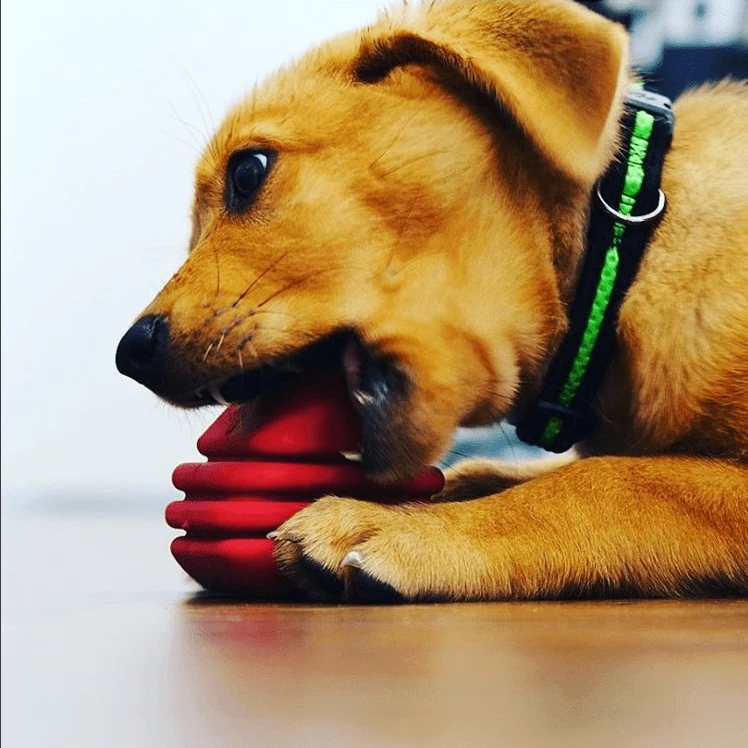Why Do Puppies Chew and What to Do About It?
Posted on February 15, 2025 by Team Gorilla

When puppies are born, they are born without teeth. This helps puppies in the latching and nursing phase. After about 2-3 weeks their milk teeth (or baby teeth) start coming in. At 8 weeks your puppy will have a full set of milk teeth, and this is when their mom will begin to ween them.
There’s a lot of change in that tiny mouth. All that change means that they will chew. Chew on you, chew on their siblings, chew on objects. Chewing not only relieves pain but it’s also their way to explore.
Learning From Littermates
In playing with their litter mates they will learn how hard to bite. If one of them gets hurt then the hurt puppy will yelp and stop playing with the puppy that bit them. This helps them teach one another that if they want to play they need to learn to be more gentle.
When to Expect Adult Teeth
After getting their milk teeth, they will then start to get their adult teeth around 3-4 months old. Around 6-8 months is when they will have their full set of adult teeth and they will stop mouthing as much. Even though it would be easy to wait out this process, it’s important that during this whole process, you teach them where to chew rather than waiting it out.
How to Mitigate Chewing
If you find your puppy chewing other things they shouldn’t replace it with something they can chew on. It can be helpful to have boxes of chew toys that you can cycle through, so they won’t get bored. The best toys to get them are durable chew toys that won’t break apart and get ingested by your pup. Puppies and adult dogs often need mental stimulation to keep from chewing on your favorite things. Having boxes of toys will provide them with enough variety that they won’t get bored with the toys you give them.
Just like their siblings, if they are chewing on you, withdraw attention and give them a toy they can chew on. Make sure not to pull or tug your hand and clothes away because this can often be mistaken as play by your pup. Keeping still as much as possible and throwing a toy in another direction can help redirect their behavior.
Another thing to consider is to puppy-proof your home. Don’t leave things on the ground you wouldn’t want to be chewed on. Also, block off areas and skirt furniture so they will learn that it’s inappropriate to chew those items.
Normal and Destructive Chewing
While chewing is a normal behavior, there is a difference between normal and destructive chewing. If the dog has been weened too early or has anxiety they will be more likely to chew. Also, dogs with eating issues will chew too. If any of these reasons are why your dog is chewing, it’s important to get professional help.
For normal chewing, make sure they have plenty of chew toys they can turn to and give them activities to keep their mind active. Adult dogs won’t destroy your house if there isn’t an underlying issue, but regardless they will still chew from time to time.
To help your new puppy or adult dog to get comfortable in your home, give them their own space with the Gorilla Chew Proof Ctate Pads and Chew Proof Dog Beds. That way they have a space they can relax and call their own, and when they get the urge to chew you won’t have to worry about their bed. This bed has a 125-day warranty and is machine washable making it your best friend through your pappy’s teething phase.
